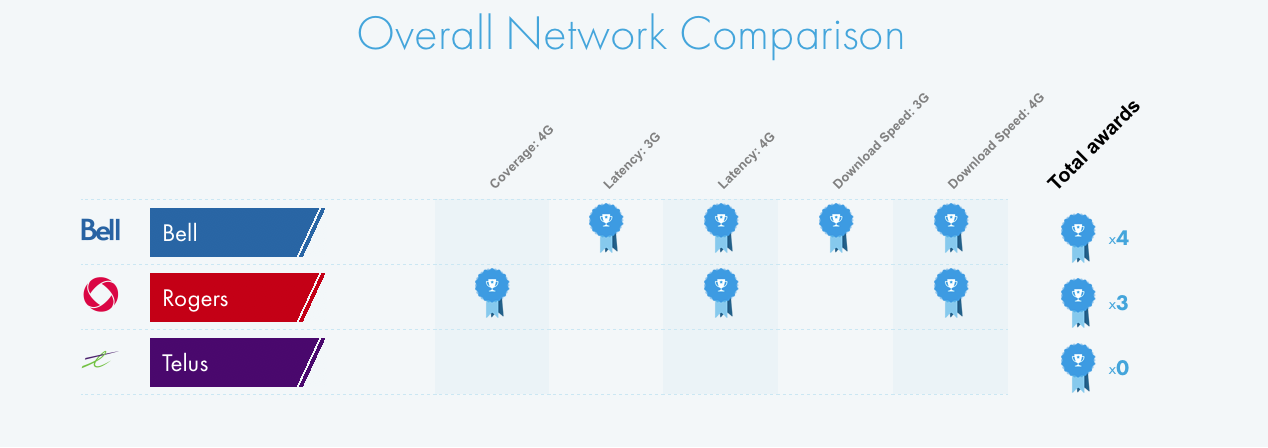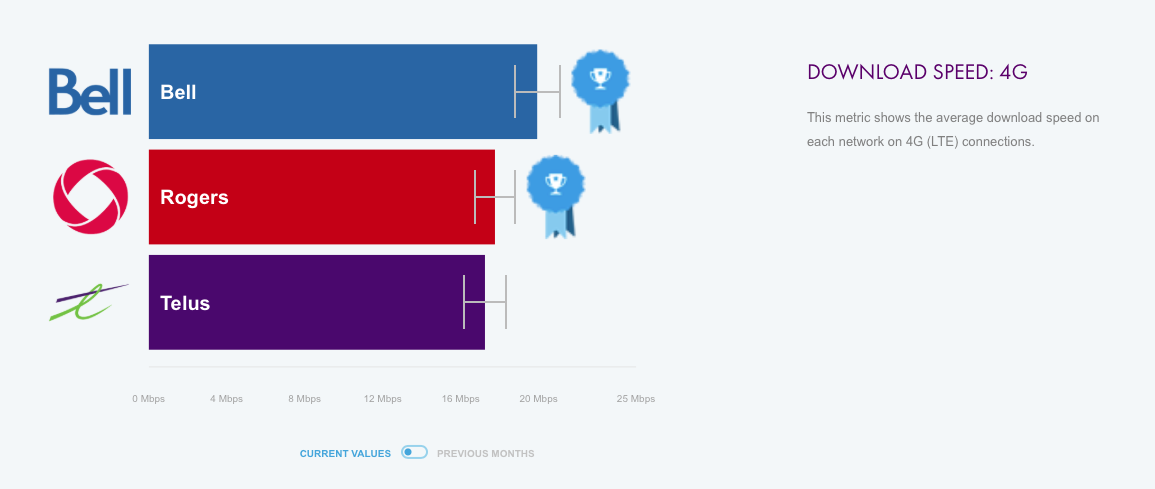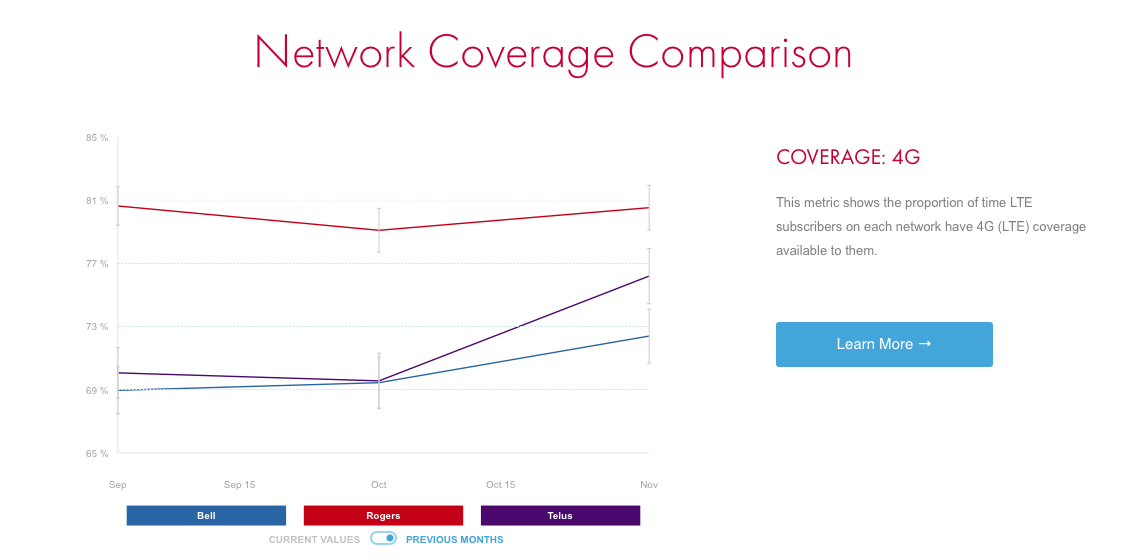
Bell Has Canada’s Fastest Mobile Network: OpenSignal

If you want the highest data speeds on your smartphone or tablet, you should contact Bell, according to the latest report from OpenSignal.
After collecting more than 27 million data points from 15,639 users between September 1 and November 30, 2015, OpenSignal has concluded that the Big Three are surprisingly close when it comes to matching each other’s 4G performance, but that Bell has the fastest Canada-wide network, with an average speed of 19.92 Mbps.
By the way, Bell’s two rivals, Rogers and Telus, averaged more than 17 Mbps (which is far above the global average of 12.6 Mbps), with 17.75 Mbps and 17.24 Mbps, respectively. It is worth noting that all three carriers performed well when it comes to LTE coverage, with more than 70% of the time, but Rogers edged out its competitors with 80%, which puts it among the world’s elite when it comes to providing a reliable LTE connection.


While the OpenSignal report doesn’t compare the local carrier’s performance to those of the Big Three, it notes that they were impressed by the performance of SaskTel and Videotron, as the two averaged LTE speeds greater than 27 Mbps in their respective provinces.
Although switching to 4G theoretically reduces network latency, OpenSignal says this doesn’t happen in real time. A lower latency is essential for real-time communications apps such as video conferencing and VoIP. Now, in Canada, so far only Rogers has been able to launch VoLTE services and, as it turns out, has the lowest latency, at 57 ms. In theory, LTE networks should have latency in the sub-20 ms range.
“Canadians often tire of the constant comparisons to its big neighbor to the south, in this instance the comparison is quite favorable. In our most recent global LTE report, there was a full 5 Mbps difference in speed between U.S.’s fastest network and Canada’s slowest. The U.S. has a slight edge on Canada in coverage, but Canadian operators still rank among the world’s top tier when it comes to providing a consistent 4G signal. Frankly there’s not much to criticize when it comes to the network progress of Canada’s three major operators (pricing is another matter — like the U.S. Canada’s consumer rates are quite high). Canada already has some of the highest performing networks in the world and they only seem to be improving,” the OpenSignal report concludes.

